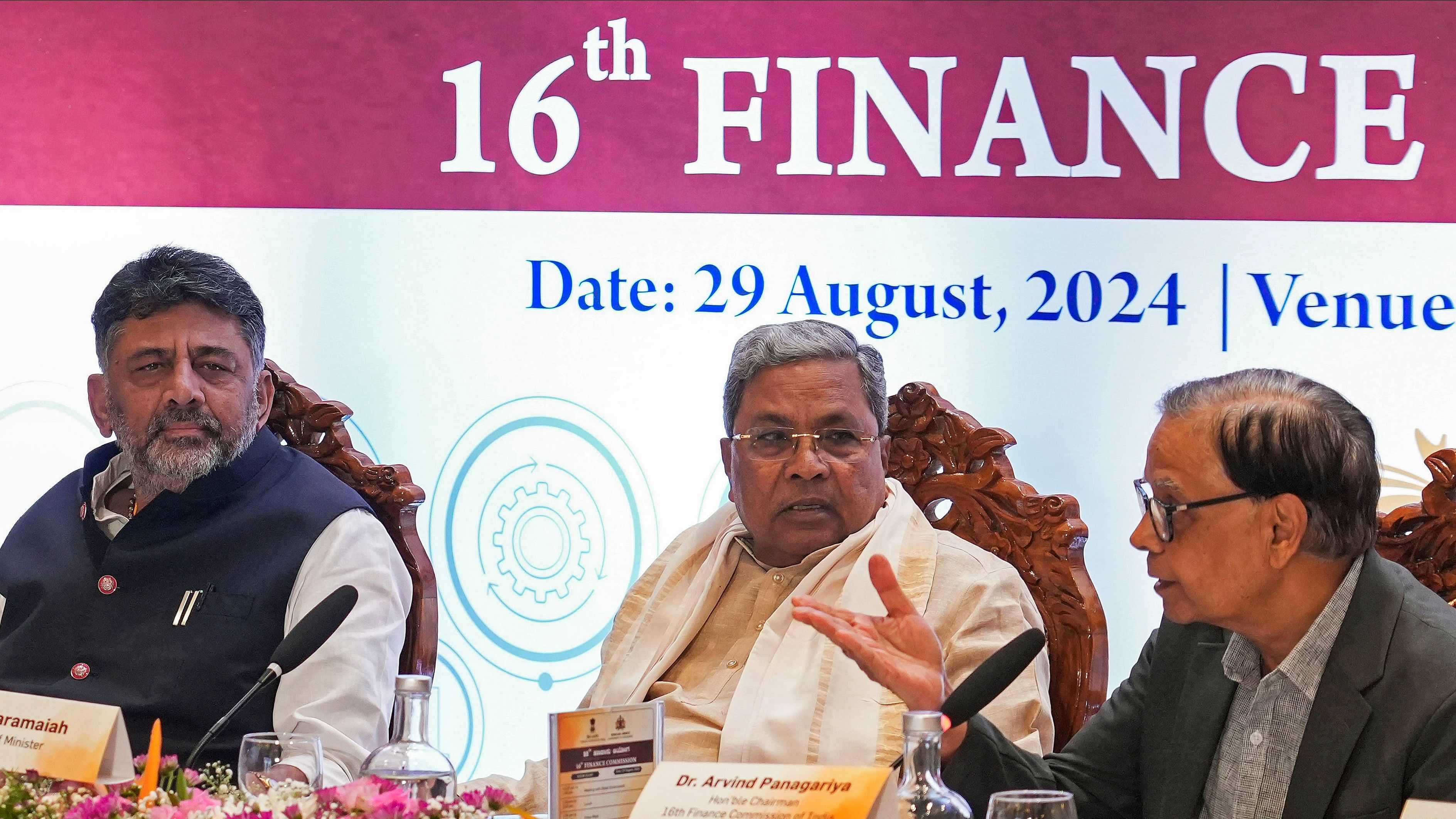
Chief Minister Siddaramaiah and Deputy Chief Minister D K Shivakumar with Chairman of 16th Finance Commission Arvind Panagariya during a meeting in Bengaluru on Thursday.
Credit: PTI Photo
A number of issues relating to states’ financial powers and rights, fiscal federalism and sharing of revenues between the Centre and the states have come into focus in the wake of the appointment of the 16th Finance Commission. The Commission will decide the norms for revenue-sharing between the Centre and the states for five years starting April 2026. It has started its discussions with the states. It has a challenging job at hand as there are conflicting demands and considerations, a changing fiscal scenario, and varying interpretations of ideas like financial equity and fiscal justice. The task is complicated by the politics that gets mixed up with financial relations between the Centre and the states and between the states. Political federalism and fiscal federalism are entangled and so the Commission will have to steer itself through difficult terrain.
The discussions that the Commission held in Karnataka recently have to be seen in this context. In a memorandum submitted to the Commission, Chief Minister Siddaramaiah said that the state should retain 60% of what it contributed to the divisible tax pool. He made the case on the basis of the fact that the state contributed 8.4% to the national GDP with only about 5% of the nation’s population but got only 15 paise for every rupee that it contributed. It has seen its share in the divisible tax pool falling and has seen transfer of large amounts of its revenue to other states because of a “disproportionate weightage” given to equity. The state has sought special grants for development of Bengaluru and Kalyana Karnataka and for disaster management in the Western Ghats region. The Chief Minister also wanted the Commission to exclude major cities like Bengaluru while determining the per capita income levels of states.
All states in the South have similar demands because they have felt that they have been penalised for their better performance in social and economic fields. Equity involves the more developed states aiding the less developed ones, but the southern states have felt that they should not be made to subsidise the poor performance of states in the North and the East. Siddaramaiah made this clear when he said that support for other states should not be at the “expense” of the people of the state. Southern states have also felt discriminated against by the Centre, with political divisions aggravating their sense of unfair treatment. Karnataka has said it wanted a “balanced and fair approach” from the Commission, and the Commission has said it would not take decisions that would cause discord. The legitimate concerns of the state need to be heard and acted upon.